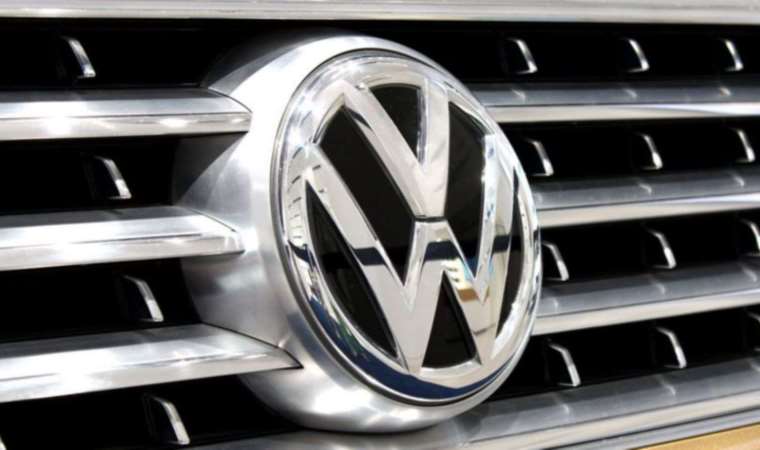Volkswagen’s China shortcut is expected to tempt rivals
Volkswagen's expedited approach in China presents a challenging roadmap for its western competitors.

The $69 billion automaker intends to invest $700 million in Xpeng (9868.HK) to gain access to the Chinese upstart's technology, accelerating the development of its electric vehicles. In an increasingly competitive Chinese market, other companies may find it necessary to chart a new course.
This strategy emerged out of necessity. VW's flagship electric models faced a slow start in China and struggled to keep pace, even as Chinese consumers began showing significant interest in electric vehicles. Delays in its software unit Cariad hindered the group's ability to introduce new products promptly.
While China remains VW's largest single market and the brand still leads in internal combustion engine sales with a 20% market share, the German group holds a mere 2.6% share of the electric car segment, according to Shanghai-based consultancy Automobility. In contrast, domestic giants like BYD (002594.SZ) and (1211.HK) have surged ahead.
The Xpeng partnership could help VW reverse this trend. The ID series had previously been developed in collaboration with long-time partners FAW and SAIC (600104.SS), but the latest deal takes a different approach by partnering with a new generation automaker focused on electric vehicles from the outset and leveraging its technology.
Although this is a humbling move for a global leader like VW, it may ultimately pay off. In addition to acquiring a 5% stake and a board seat, VW gains access to Xpeng's cutting-edge software, including assisted driving, voice-activated commands, and in-car entertainment systems. Furthermore, VW can develop designs with a similar underlying structure to Xpeng's G9 model, which is better suited for incorporating such features compared to a traditional setup. While preparing a new product for the market can typically take up to five years, VW aims to launch two new electric models by 2026 after teaming up with Xpeng.
VW's western competitors might not feel compelled to follow suit immediately. Tesla (TSLA.O) still holds a strong second position in China, while higher-end rivals like BMW (BMWG.DE) have yet to experience the same level of competition that has affected VW's volume brands. Additionally, like VW, these legacy brands remain profitable. Many Chinese EV startups have yet to turn a profit, with Xpeng reporting a negative 3.9% gross margin for the three months ending in June.
However, multinational competitors may need to consider partnerships with Chinese firms for two reasons. First, consolidation is gaining momentum in the Chinese market, which is currently oversaturated with production capacity exceeding demand. The consultancy Alix Partners counts 167 electric car companies in China, with an increasing number of brands competing for market share.
Second, VW's partnership with Xpeng highlights the need for companies to adapt swiftly to remain relevant in China. Chinese consumers are increasingly choosing cars based on features like smart cockpits and infotainment systems, areas where Chinese companies like Xpeng have heavily invested. These features are often more valuable on congested urban roads than advanced braking systems or long-range batteries. Additionally, they help consumers differentiate between the various models available, especially at a time when third-party suppliers like CATL (300750.SZ) provide batteries to multiple automakers, making the cars more similar in terms of range and performance.
If VW's competitors decide to follow a similar path, there are numerous potential partners available for joint ventures or outright mergers. Companies like Leapmotor (9863.HK), Nio (9866.HK), Li Auto (2015.HK), and newcomers like Xiaomi (1810.HK) have developed their own software and technology. However, such partnerships also carry risks, including potential political backlash and challenges stemming from cultural differences. Nevertheless, VW's decision is likely to inspire even its most confident western rivals to consider exploring this less-traveled route.
Most Read News
-
 No Future Without Industry: A Call for Production-Orient
No Future Without Industry: A Call for Production-Orient
-
 Israel’s Ben-Gvir ends US visit amid pro-Palestine prote
Israel’s Ben-Gvir ends US visit amid pro-Palestine prote
-
 Japan seeks collaboration to advance nuclear disarmament
Japan seeks collaboration to advance nuclear disarmament
-
 Major fire erupts at electrical substation in West Londo
Major fire erupts at electrical substation in West Londo
-
 Ukraine appoints new deputy defense ministers amid ongoi
Ukraine appoints new deputy defense ministers amid ongoi
-
 Malaysia urges all parties in Myanmar to continue ceasef
Malaysia urges all parties in Myanmar to continue ceasef
-
 German Social Democrats conclude key vote on coalition d
German Social Democrats conclude key vote on coalition d
-
 Canada's Liberal Party wins federal elections by over 43
Canada's Liberal Party wins federal elections by over 43
-
 At least 41 civilians killed, scores injured in RSF shel
At least 41 civilians killed, scores injured in RSF shel
-
 Israeli army arrests 22 Palestinians, demolishes 4 homes
Israeli army arrests 22 Palestinians, demolishes 4 homes










